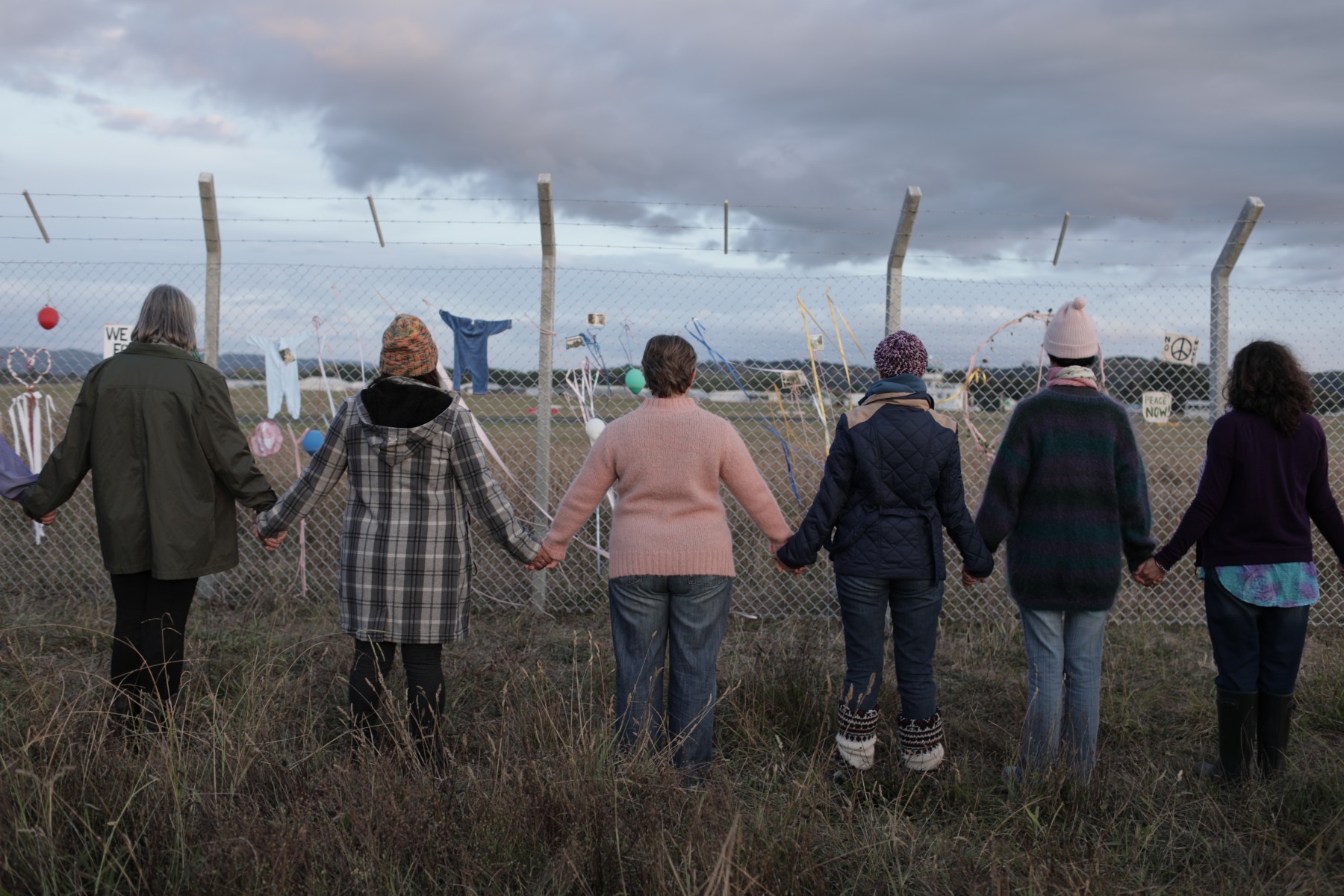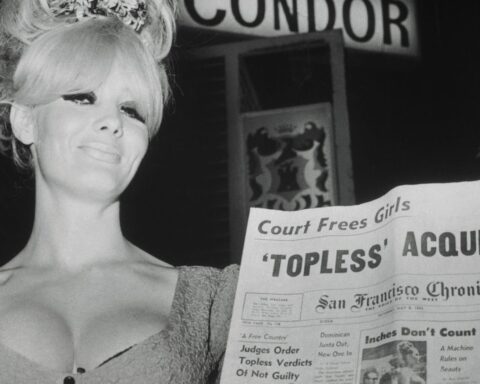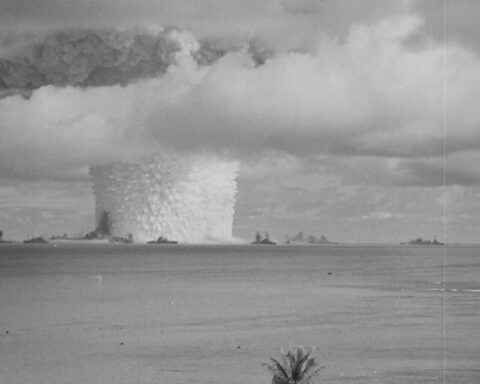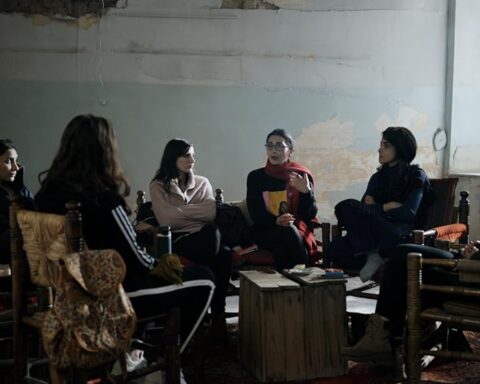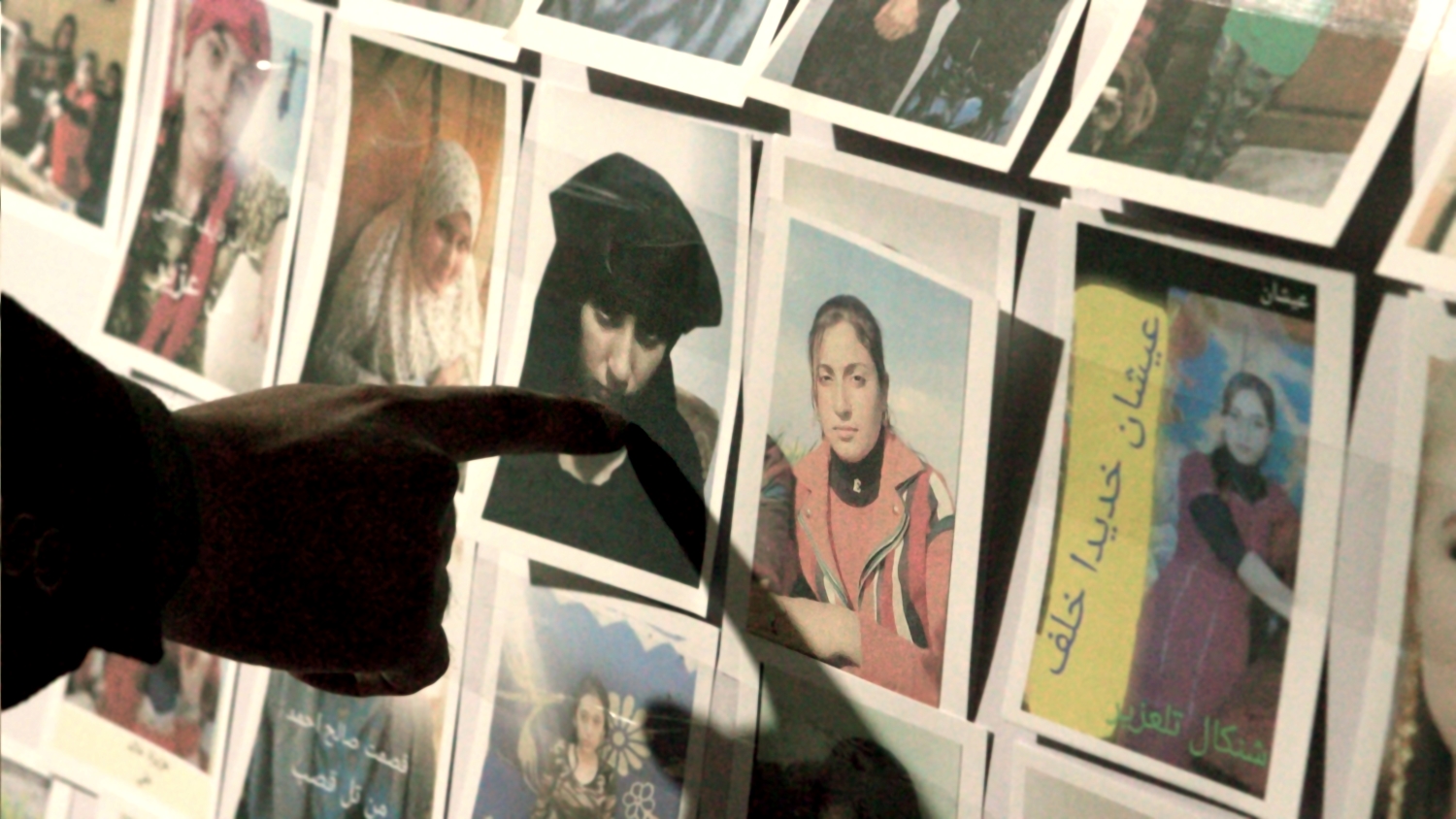Mothers of the Revolution
(New Zealand, 102 min.)
Dir. Briar March
What can one do in four minutes? One can spend the time waiting for a French press pot of coffee to steep, perhaps. Or maybe rock out to “You Learn” by Alanis Morissette or “Tubthumbing” by Chumbawumba. Four minutes isn’t very long. The women in Mothers of the Revolution, however, share how it’s enough time to shatter their families. It’s enough time to provide moments of fear and generate sleepless nights.
Four minutes also happens to be the amount of time the residents near Greenham Common in the United Kingdom were advised they would have to prepare in the event of a nuclear strike. The mothers of the land absorbed this news while awaiting nearly 100 nuclear missiles from the USA to roll into the local airbase. Mothers of the Revolution revisits how the weapons provided not a sense of security, but of absolute terror. Four minutes is not enough time to protect one’s children or save oneself in the event of a nuclear attack.
Women on the March
It’s in this context that Mothers of the Revolution revisits a different kind of Cold War upon its 40th anniversary. Director Briar Hill assembles the women who marched from Wales to the Royal Air Force base at Greenham to protest the impending nukes. The film draws an admirable range of interviews to create an old-school talking heads doc. Mothers of the Revolution tells history by those who made it. Women like Karmen Thomas and Rebecca Johnson share how their activism turned fear into empowerment.
The activists humorously recall how the RAF guards were so surprised by their arrival that they assumed the protesters to be the cleaners. They tell how they stood their ground and gained some media attention from the outlets that looked for stores other than Charles and Diana. However, the film shows how they tapped into a collective anxiety that was strong enough to attract the likes of actress Julie Christie, who appears in the doc. More importantly, they share how the Greenham Common march became a global movement. Women from the USA and Russia joined with them to lobby against the nuclear arms race between the world’s superpowers.
The Frontlines of Feminism
The women’s story is one of feminism on the frontlines. Blockades grew, camps erected, and messages amplified. Arrests followed. Archival footage shows the women in the trenches of the anti-nuclear movement. But these are not Greenpeace hippies, per se, or anything-goes activists. They’re ordinary people united in a cause to protect the planet from political one-upmanship.
As Hill draws interviews from the women who courageously went to the frontlines of the anti-nuclear fight, their stories uncover another war—the battle against sexism—that was intimately linked to their quest. Newspaper clippings whirl onto the screen with headlines decrying the nuisance of “shrill women.” Terms like “harpy” are frequent. Physical abuse by guards and police officers adds fuel to the fire. The abundance of male reporters and, more noticeably, male police officers and politicians, underscore the gender imbalance in both the democratic process and the decision making that transformed a quiet corner of Berkshire into a political minefield.
Similarly, the doc briefly explores the role of gender exclusivity. Participants in the Greenham Common Women’s Peace Camp wonder if their efforts could enjoy a wider reach by inviting men to join the party. The women debate the role of allies with a relevant message about finding the past path forward for a fight.
The Fight Goes On
Mothers of the Revolution finds a rousing voice of reason as two-time Oscar winner and former Member of Parliament Glenda Jackson narrates the doc. Her omniscient perspective brings the various voices together with authority. The Greenham women are all great characters who will inspire viewers, but some voices emerge with especially strong tales. Chris Drake, for example, recalls the movement as an awakening as she realised she was a lesbian. She tells of a second fight as she reconciled her relationship with her husband and children with her newfound self.
March finds extra drama in the thread involving Russian protester Olga Medvedkova, who joins the women in trying to convince a gaggle of stubborn male politicians to do the right thing. She delivers a gripping story about reprisals from the Russian government that included serious charges and potential jail-time. The doc nevertheless shows how the women of the movement used each blow to hit back stronger.
Mothers of the Revolution uses the Greenham case to salute the women who continue to fight. March draws upon the Greenham women’s inspiring story with by highlighting more women who summoned the rabble. A closing montage highlights the silence breakers of the #MeToo movement, champions for peace like Malala Yousefzai, and climate activists like Greta Thunberg to show a fight with fire in the belly. One movement births many.




